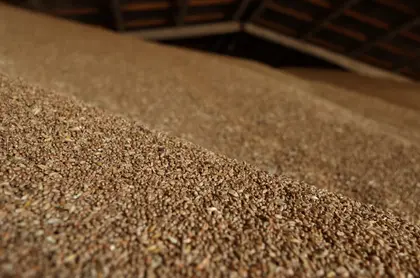Poland, Hungary and Slovakia are blocking imports of Ukrainian grain. This is illegal according to EU law and must be stopped. Ukraine has sued these countries in the WTO, but that is even worse folly, because the European Commission speaks for all EU member states at WTO meetings. Ukraine should withdraw its case from the WTO and let the European Commission mediate.
Ukraine’s agriculture is magnificent. This country has just about the best soil in the world and it has suitable temperatures and desirable volumes of water as well. I was once taken around the corn and soy fields in Illinois. My host told me that only they and the black earth in Ukraine have such ideal conditions for agriculture.
JOIN US ON TELEGRAM
Follow our coverage of the war on the @Kyivpost_official.
Thanks to the privatization of agricultural land in 2000, Ukraine has seen an explosive development of its grain production. Once again, Ukraine has become the granary of the world. Traditionally, agriculture has accounted for 40 percent of Ukraine’s exports, but last year, after the Russians bombed its steelworks, it rose to two-thirds.
Russia is pursuing a total war against Ukraine. After it had bombed the steelworks in Mariupol and the machine-building all over, the widespread agriculture remained. Russia started its war by blocking Ukraine’s exports through the Black Sea. The entrepreneurial Ukrainian farmers sought to export by other means – mainly by rail through Eastern Europe.

Poland to Use EU Presidency to Fast-Track Ukraine’s NATO and EU Membership
That was not an optimal solution. The rail capacity to the west was too limited, and the border controls are just madly slow. Rail transportation is much more expensive than shipping, and the cost of logistics is taken from the profit of the Ukrainian farmers. The worst blow, however, was that five Eastern European EU members – Poland, Slovakia, Hungary, Romania, and Bulgaria – temporarily blocked Ukrainian exports of major grains to their countries, and partially even transit. The European Commission tried to mediate and achieved some mitigation by paying limited subsidies to the Eastern European rule breakers, but politics and diplomacy are the rules of the possible.
Now, however, the positions have hardened. It is about politics and poor agriculture. When driving from Ukraine to Poland, one is stunned by how much better the Ukrainian agriculture is. It is not only that Ukraine has much better soil. It has huge fields that are well tended to with big modern machinery. Poland remains fragmented into tiny fields. On many of them little grows, since the main aim of the owners is to extract various government subsidies from being landowners. No consolidation of land ownership is taking place. Therefore, minimal modernization occurs.
Poland might be the most pro-Ukrainian nation, but it is holding highly contentious parliamentary elections on Oct. 15. The populist, though pro-Ukrainian, conservative party Law and Justice (PiS) party is likely to remain the country’s biggest. It appeals to the millions of inefficient small farmers in the east of Poland, so it needs to stand up for them.
Slovakia has parliamentary elections coming up on Sept. 30. The current center-right government has been strongly supportive of Ukraine, but leftwing anti-Ukrainian populist Robert Fico and his SMER party is likely to win. He is openly pro-Russian and anti-Western, appealing to communist nostalgia. The more he quarrels with Ukraine, the better for Fico.
Hungary’s Viktor Orban should not belong in the EU or NATO. He makes every sign of having been bought by Putin in 2012, when he without any studies decided to buy an expensive nuclear power station from Russian state-owned Rosatom. He benefits politically from any conflict with Ukraine, and if Fico wins in Slovakia he is likely to be strongly reinforced in his anti-Ukrainian and pro-Russian attitudes.
Thus, for Ukraine it is a lose-lose situation to raise the grain trade issue with the WTO. Absurdly, Ukraine is forcing an alliance of its enemies – Hungary and Fico are forced to get together with Poland and the whole of the EU. This makes no sense!
Ukraine should withdraw its suit against Poland, Slovakia and Hungary in the WTO instantly! If it does not do so, Ukraine’s best friends – the Balts, the US, the UK or Canada – should tell the Ukrainian leadership that this makes no sense and that it must withdraw its WTO issue.
The natural conciliator is the European Commission. It may somehow protect the Eastern Europeans with substandard and uncompetitive agriculture (notably in Poland), while salvaging the excellent Ukrainian farmers with direct subsidies, an old but tried-and-true cure.
Anders Åslund is a senior fellow at the Stockholm Free World Forum.
The views expressed in this opinion article are the author’s and not necessarily those of Kyiv Post.
You can also highlight the text and press Ctrl + Enter






